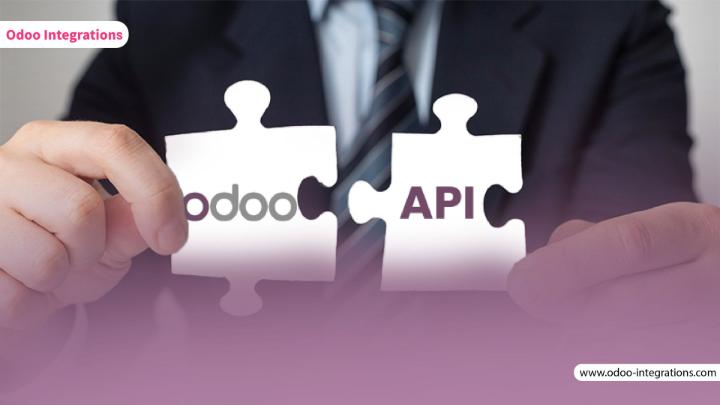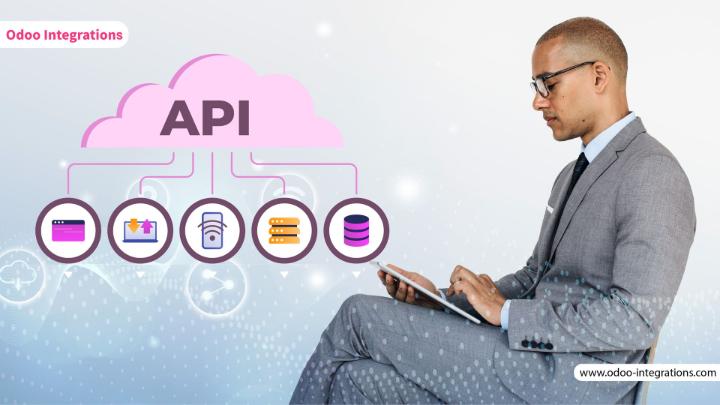Effortless System Connectivity via Odoo API Integration
Nowadays, in the virtual economy, businesses move smoothly on interconnected systems. Starting from HR, analytics, logistics, eCommerce platforms, to payment gateways, and CRM, organizations depend on a network of applications to ensure that operations move flawlessly. Moreover, various platforms come with difficulties such as manual procedures, inconsistent reporting, and fragmented data.
At this point, Odoo API Integration comes into the spotlight. By becoming a central hub for connectedness, Odoo enables businesses to identify multiple applications in a single coherent ecosystem. For all the B2B businesses, this does not just clarify the IT Structure, but it also crafts a flexible infrastructure for growth, innovations, and efficiency.
What is Odoo API Integration?
Odoo API Integration is the procedure of connecting other applications with Odoo, whether they are third-party platforms, custom systems, or cloud-based tools. Rather than moving business functions into silos, the integration assures flexible communication through applications, enabling data to run smoothly. This ensures Odoo becomes more than just an ERP; it tends to become a hub where finance, operations, customer interactions, and sales collaborate in a single unified platform.
Why Odoo API Integration is Essential?
Increases Efficiency- It automates repeated projects such as payment processing, stock updates, and order syncing.
Supports Scalability- It smoothly adds new advanced applications and systems without disturbing existing workflows.
Eliminates Data Silos- Each of your systems tends to decrease duplication and errors, and also shares updated data.
Enhances Customer Experience- It provides accurate order tracking, personalized services, and faster responses.
Improves Decision-Making- It makes accessible analytics across all connected platforms and consolidated reports.
How does an Odoo API Integration Work?
Odoo tends to provide various protocols, which allow developers to firmly exchange data between other applications and Odoo. The integration procedure usually includes:
1. Data Mapping: It matches fields between systems to make sure data flows accurately.
2. Development: It involves using middleware platforms or to integrate scripts to connect systems.
3. Requirement Analysis: To understand which systems will be connected and which data needs to be shared.
4. Testing: Make sure that data synchronization is correct and workflows operate flexibly.
5. API Authentication: Initiating secure connections between the external system and Odoo.
6. Deployment: It allows you to go live with the integration.
7. Maintenance and Monitoring: Ensure the combination of functional and updated systems is developed.
What are the Challenges faced in Odoo API Integration?
While the benefits are significant, combining Odoo with external systems comes with a lot of challenges:
1. Data Mapping Complexity: Making sure that your data formats match within the systems can be extremely tricky.
2. API Limitations: Various third-party applications tend to have restrictions on request limits or data access.
3. Maintenance: The platforms and APIs are updated often and require ongoing adjustments to integrations.
4. Security Concerns: There are improper APIs that can expose sensitive business data.
That’s why engaging with an experienced and skilled Odoo ERP Development Company is very crucial to ensure a secure, future-proof, and flexible integration.
Key Areas Where Odoo API Integration Creates Value
Sales Platforms and CRM- The B2B sales cycles are relationship-driven and tough. Combining Odoo with CRMs such as HubSpot and Salesforce makes sure that communication history, deal pipelines, and customer data flawlessly sync with ERP procedures such as order fulfillment and invoicing.
Marketplaces and eCommerce- For businesses that sell through platforms such as Magento, Amazon, or Shopify. Odoo Integration automates order management, payment reconciliation, and product updates. This crafts a flexible buying experience for B2B clients while decreasing back-office efforts.
Supply Chain Systems and Logistics- Combining with warehouse management systems or shopping providers assures real-time inventory management, automated order tracking, and label generation. This improves credibility in supply chain operations.
Financial and Accounting Tools- Businesses usually need integrations with payment gateways and banks, or provide third-party accounting platforms. Odoo API Integration allows quicker financial reporting, compliance-friendly record-keeping, and real-time reconciliation.
Payroll and HR Systems- By connecting with HR platforms, the organizations can simplify employee attendance, payroll, performance tracking, and onboarding, while assuring data continuity across various departments.

Strategic Advantages for B2B Businesses
Beyond a user-friendly experience, Odoo API Integration tends to provide competitive benefits:
Enhanced Client Experience- It offers error-free procedures and real-time visibility to transform into a more credible service for B2B clients.
Better Partner Collaboration- Flawless data exchange with distributors, partners, and suppliers reinforces the value chain and improves relationships.
Future-Proof Structure- As the technology grows, Odoo’s API-driven smoothness enables organizations to adopt new tools without disturbing operations.
Faster time-to-market- Organizations can enter new regions instantly or launch new services without rebuilding their IT Stack.
Conclusion
For all B2B Organizations, growing effectively relies on smooth connectivity. Odoo API Integration presents exactly a centralized hub where all the procedures, data, and systems come together smoothly. It decreases costs, removes silos, supports long-term growth, and enhances decision-making. In times where efficiency and agility decide competition. Odoo API Integration is not only an IT upgrade but also stimulates investment in business growth. The organization that prospers today will be the one that will lead its industry tomorrow.
